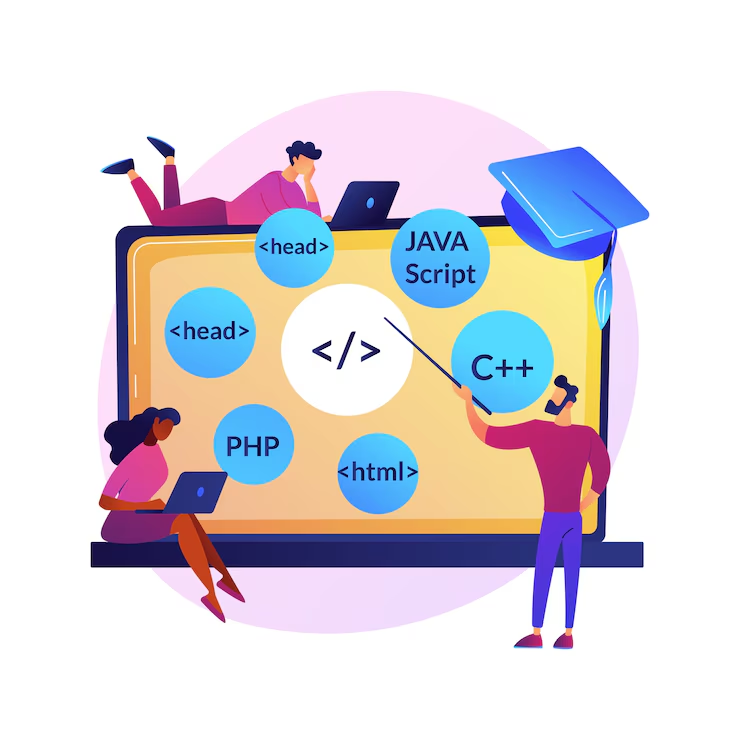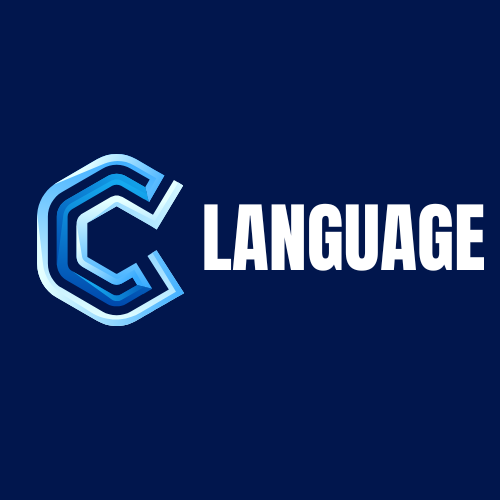C language is single of the maximum common programming languages. It is great, resourceful, and useful. From operating systems to entrenched systems, C has shaped modern computing. Let’s dive into what makes C such an essential programming language.
Introduction to C Language
C was produced in the 1970s through Dennis Ritchie. It was calculated for system programming and inscription operating systems. Over time, it became widely adopted in various fields.
Why is C so important? It offers a hard basis for knowledge other languages. Many current programming languages like C++, Java, and Python are subjective by C.

Types of C Language
- Simple and efficient: C programs are easy to write and execute quickly.
- Structured programming: C supports structured programming concepts like loops and functions.
- Portable: Code written in C can be run on multiple platforms with minimal changes.
- Low-level access: It gives programmers access to memory, making it ideal for system-level programming.
- Rich library: The standard library offers useful functions and tools.
Why Learn C Language?
C is essential for developers because of its versatility. It helps in understanding how computers work internally.
Here are key reasons to learn C:
- Foundation for other languages: Learning C makes it easier to grasp C++, Java, and Python.
- Problem-solving skills: Writing programs in C sharpens logical thinking.
- Career opportunities: C is widely used in industries like robotics, embedded systems, and gaming.
A Detailed Table About C Language
| Aspect | Details |
| Creator | Dennis Ritchie |
| Year Developed | 1972 |
| Purpose | System programming and developing operating systems |
| Main Features | Efficiency, portability, structured programming, low-level memory access |
| Applications | Operating systems (like Linux), embedded systems, game development, compilers, and more |
| Syntax Kind | Technical and organized |
| Typical | ANSI C (American National Standards Institute C) |
| Common Libraries | stdio.h, stdlib.h, math.h, string.h, conio.h |
| Coming Projections | Main to system-level programming, teaching, and high-performance uses |
Important Concepts in C Language
To main C, you need to comprehend its central ideas.
Data Types and Variables

C has a selection of files kinds, such as int, float, and char. Variables are castoff to source data for programs.
- Integer (int): Stores whole numbers.
- Floating Point (float): Stores numbers with decimal points.
- Character (char): Stores single characters.
Control Structures
Control structures allow decision-making and loops in programs.
- If-else statements: Used for conditional execution.
- Loops (for, while, do-while): Recap jobs built on conditions.
Functions
Functions help break the program into smaller, reusable pieces. For example:
c
Copy code
#include <stdio.h>
void greet() {
printf(“Hello, World!”);
}
int main() {
greet();
return 0;
}
Pointers and Memory Management
C provides pointers for dynamic memory allocation and accessing memory locations directly.
Common Applications of C Language
C is used in various fields due to its versatility.
- Operating Systems: Core components of Linux and Windows are written in C.
- Embedded Systems: C is ideal for programming microcontrollers.
- Games: Many game engines rely on C for performance.
- Compilers: C is used to develop compilers for other languages.
Experts and Scams of C Language
Let’s explore the advantages and limitations.
Experts
- Fast execution and high performance.
- Portable code across different platforms.
- Access to system-level resources like memory.
Scams
- No in-built backing for Object-Oriented Programming (OOP).
- Error-prone due to manual memory management.
- Lacks modern features like garbage collection.
Normally Asked Questions
What are the main types of C language?
C is simple, portable, and efficient. It supports structured programming and low-level memory access. Its types create it perfect for system programming. Additionally, it provides a rich standard library.

How is C different from other programming languages?
However, it is much faster and more efficient. It also allows direct memory manipulation.
What are some real-world applications of C?
C is used in many critical applications. For instance:
- Operating systems like Linux.
- Embedded systems for microcontroller programming.
- Game development for high-performance engines.
- Development of other programming language compilers.
How can I start learning C language?
To start learning C, follow these steps:
- Download and install a C compiler like GCC.
- Learn the syntax and basic concepts.
- Practice writing programs using loops, functions, and pointers.
- Explore advanced topics like file handling and data structures.
With consistent practice, you’ll quickly master C programming.
Decision
C language remains a cornerstone of programming. From its robust features to its practical applications, C provides a foundation for solving complex problems.
To sum up, C is more than just a language—it’s a tool to enhance your skills. By mastering it, you build a strong base for understanding advanced languages.

Excellent
[…] VPNs redirect and translate your internet traffic over a distant server. While attractive security, these other steps can slow down your connection. […]
[…] Portability: C programs can be compiled and run on different hardware platforms with minimal changes. […]
Fine